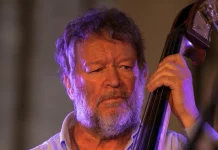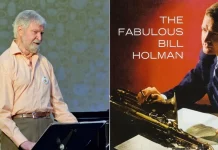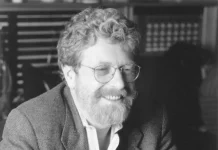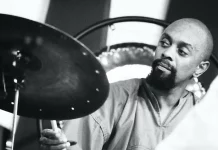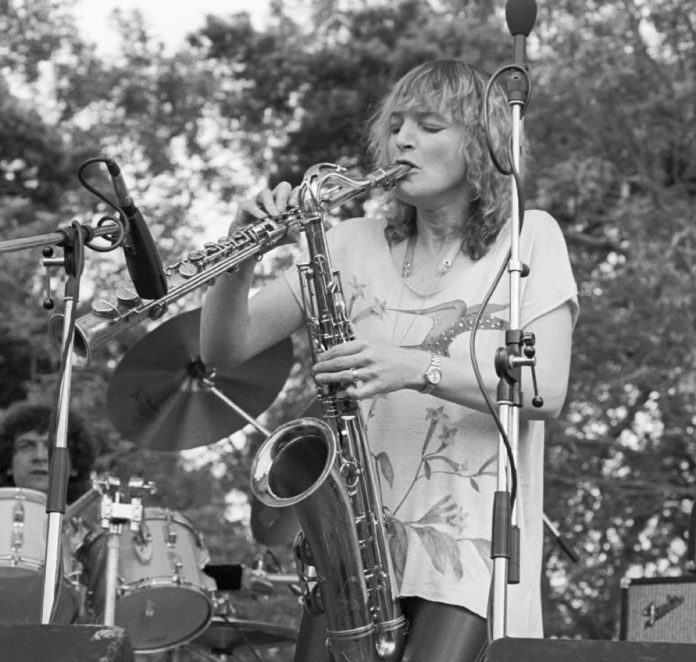
It’s axiomatic to aver that Barbara Thompson, who passed away 9 July 2022, was the greatest female jazz musician that the UK has produced. However, although that is undoubtedly true, Thompson might be the first to balk at the use of her gender as a descriptor of her talent. She was actually one of the best jazz musicians and composers in the world. But she was also one of the very few pioneer women jazz musicians when females in jazz were rarities who, certainly in Thompson’s case, suffered occasional subtle or not-so-subtle sexism.
Born into a musical family, 27 July 1944, she started music lessons at the age of 12 at her secondary school, Queen’s College, in central London. Initially studying piano and clarinet she took extra lessons at the nearby Royal Academy of Music. She joined the London Schools Symphony Orchestra (LSSO) aged 12 and later joined the Royal College of Music’s orchestra and Orchestra For All at Morley College.
At around the age of 19, after witnessing Johnny Hodges playing at a Duke Ellington concert, she was inspired enough to take up the saxophone and bought a decent alto. After happily failing to launch a career as a secretary, via a short stint at Queen’s Secretarial College, she enlisted in a music agency which secured her a job with Ivy Benson’s all-female 15-piece swing band. It was a tough gig but provided a useful background for her burgeoning career.
At 20 she enrolled at the Royal College of Music on the performer’s course. Importantly, Thompson was one of the first British jazz musicians to study at a leading music college, with John Dankworth being another notable earlier example. Whilst at the RCM she took up other instruments including various saxophones such as soprano and baritone (the latter making it easier to obtain gigs) and flute.
In the mid-1960s she joined the New Jazz Orchestra – led by Neil Ardley – playing second alto. There she met drummer Jon Hiseman, whom she later married. Amongst the NJO contingent were some of the leading British jazz musicians of the day including Don Rendell, Ian Carr, Mike Gibbs, Jack Bruce, Harry Beckett and Henry Lowther. The NJO recorded a number of significant albums including Western Reunion (Decca, 1965) and Le Dejeuner Sur L’Herbe (Verve, 1968). In 1973 the NJO also recorded a tribute album, Mike Taylor Remembered. The NJO had previously recorded a number of Taylor’s tunes and the album was eventually released on CD on the Dusk Fire label in 2007.
Thompson also recorded on the Ardley, Don Rendell and Ian Carr collaboration Greek Variations (Columbia, 1969) and Ardley’s A Symphony Of Amaranths (Regal Zonophone, 1971). She later played a memorable soloing role on Ardley’s epic Kaleidoscope Of Rainbows (Gull, 1976). She played in non-jazz contexts too, such as in the orchestra for the musical Cabaret; she later collaborated with Andrew Lloyd Webber on several of his successful ventures including Cats, Starlight Express, and Tell Me On A Sunday. She also composed the theme tune for the television series A Touch Of Frost, starring David Jason.
Following the NJO stint, Thompson was recruited by Don Rendell as featured soloist, recording the album Just Music (Spotlite, 1976). She also appeared on jazz-rock albums with the Keef Hartley Band (alongside ex-NJO colleague Henry Lowther) and was a key member of the international band of leaders The United Jazz + Rock Ensemble who honoured her composing and instrumental skills with the album The United Jazz + Rock Ensemble Plays Barbara Thompson (Mood, 2002). She also led two bands: one was the funk-infused Jubiaba, which recorded the album Barbara Thompson’s Jubiaba (MCA, 1978), but more famous was Barbara Thompson’s Paraphernalia, which released a whole clutch of albums over three decades, from the debut Barbara Thompson’s Paraphernalia (MCA, 1978) to Bulletproof (Temple Music, 2020). She didn’t play on the latter, which utilised members of Paraphernalia plus the National Youth Jazz Orchestra and her vocalist daughter Ana Gracey Hiseman, who sang on two tracks.
Thompson composed a number of albums for various saxophone quartets, including the suite From Darkness Into Light, performed by the Tetraphonics Saxophone Quartet and available to view on YouTube. She also appeared alongside her husband in his jazz-rock band Colosseum, first depping for the indisposed Dick Heckstall-Smith and later working on a more permanent basis after Heckstall-Smith’s premature death.
Thompson and Hiseman’s musical relationship was both reciprocal and symbiotic. Hiseman played in Thompson’s Paraphernalia and Thompson latterly became a mainstay of Colosseum. They also played together for over two decades in The United Jazz + Rock Ensemble and of course, the aforementioned New Jazz Orchestra.
Thompson was appointed MBE for services to music in 1996. She first began to experience the incipient signs of Parkinson’s disease whilst playing flute in 1997 and remarking on her fingers feeling stiff. This inevitably led to her announcing her retirement in 2001 but thanks to various medication regimens she was able to return to the stage, albeit in a more limited capacity.
It is impossible to overstate the importance of Barbara Thompson’s contribution to music for over half a century. Her departure aged 77 leaves a huge gap in the world of jazz. As a measure of her significance to the genre, a 12-CD box set of her recorded radio sessions was released two years ago entitled Barbara Thompson Live At The BBC (Repertoire, 2020). She is one of the very few jazz musicians to have this level of recognition bestowed on her, and by a predominantly rock label at that.
In 2020 Jazz In Britain published her excellent autobiography Journey To A Destination Unknown, which fills in a lot of the details of her life and musical career that space does not permit here.

